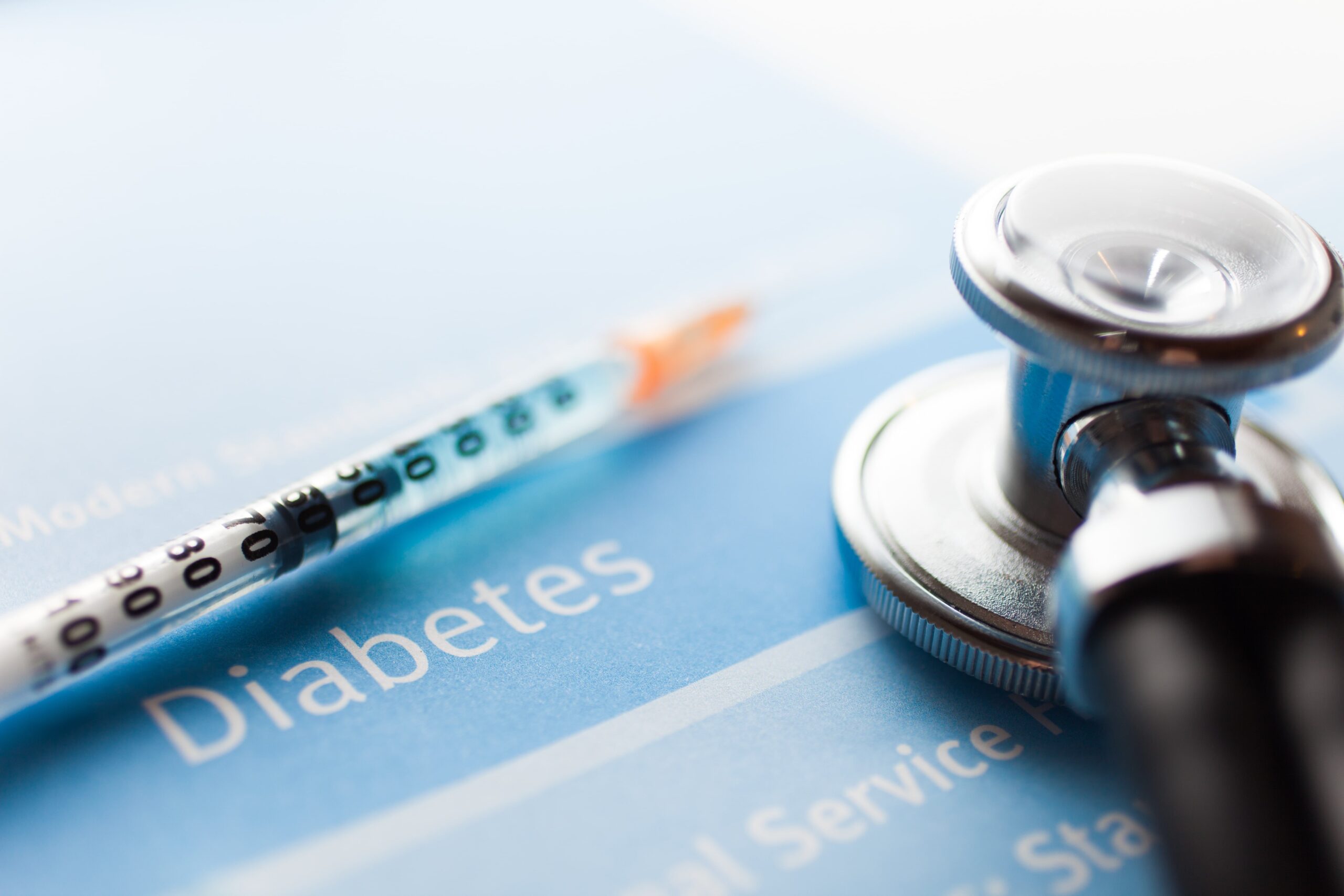According to the Center for Disease Control and Prevention (CDC), 38.4 million people of all ages in the U.S. had diabetes in 2021, which amounts to 11.6% of the U.S. population. The two main types of diabetes are Type 1 or Type 2, with the majority of cases falling into the Type 2 category.
If you have diabetes, you may wonder if it can go away on its own or be cured. The short answer is no, but diabetes can be managed and even go into remission with the right treatment and lifestyle changes.
What Is Diabetes?
Diabetes is a disease where the pancreas does not produce enough insulin or does not produce any insulin at all, or the body isn’t affected by insulin normally. Insulin is needed for glucose to be sent to cells to give the body energy, but without insulin, glucose builds up in your bloodstream. This causes high blood sugar levels, known as hyperglycemia, which can cause many serious health issues or even death over time.
Symptoms of diabetes include:
- Increased thirst or dry mouth
- Frequent urination
- Fatigue
- Unexplained weight loss
- Blurred vision
- Numbness in the hands and feet
- Slow healing wounds
- Skin or vaginal yeast infections
Is Diabetes Curable?
Diabetes is not a curable disease, but it can be managed with medication and lifestyle changes. Many people live relatively normal lives with diabetes, not developing long-term diabetes-related health conditions.
Diabetes Remission
While diabetes is a lifelong disease, it can go into remission in some cases. However, the chances of remission are different for Type 1 versus Type 2 diabetes.
Type 1 diabetes can have a “honeymoon” remission phase in some people, usually shortly after diagnosis. During this phase, insulin requirements are reduced, and the pancreas regains a level of function. In extremely rare cases, Type 1 diabetes can go into complete spontaneous remission for a period of a year or more.
Type 2 diabetes, on the other hand, can often go into remission with lifestyle changes that lead to weight loss. Remission of Type 2 diabetes is defined as normal glucose levels in the blood for three months without need for medication. Some people can go into remission for many years.
Managing Diabetes
The key to Type 2 diabetes remission seems to be weight loss. Weight loss can reduce fat in the pancreas and liver, which helps them to function more effectively.
Several lifestyle strategies can help you to lose weight, improve your overall health, and give you a better chance of diabetes remission. These strategies work best if you begin the changes shortly after your diagnosis.
Low Calorie Diet
Working with your physician and potentially a nutritionist to create a low-calorie, personalized diet plan is the first step. It’s better to work with these medical professionals to build a diet plan since everyone’s needs and health are different. Sometimes an extremely low calorie or even liquid diet for several months followed by a less restrictive, but still low-calorie, diet can jump start remission. Still, don’t do this on your own. You’ll need to work closely with your physician while implementing your diet plan so that they can monitor your overall health.
Exercise
Diet alone is generally not enough to reduce your weight enough to bring about remission, nor is exercise alone without a low-calorie diet. Exercise and calorie reduction together can lead to significant weight loss that can reduce your blood sugar levels, sometimes even long-term, if you maintain your weight.
You should aim for moderate exercise like walking every day. A step counter can help you to know how much you’re walking. 10,000 steps a day is a good target.
Bariatric Surgery
In some cases, bariatric surgery is an option to reduce weight quickly. It works by altering your stomach so that you are not able to eat as much. Surgery, of course, is risky, but speak with your doctor about it as an option. It’s very effective for many people with diabetes, with good diabetes remission results.
Your doctor can help you determine if the surgery is safe for you based on any other medical conditions that you have and your overall health.
Stress Reduction
Stress affects your blood sugar levels, so stress reduction strategies may help you when combined with weight loss strategies. You might want to consider working with a therapist to learn stress reduction methods, which can include deep breathing, guided imagery, progressive muscle relaxation, and meditation. You could also try yoga.
In Closing
While diabetes is not curable, there is hope. Both Type 1 and Type 2 diabetes can be managed with insulin or medication, and lifestyle changes that lead to weight loss can even help you achieve remission. It is extremely important to work with your doctor when implementing your lifestyle changes, and your diabetes will still have to be monitored long-term.
By taking care of yourself and seeing your doctor regularly, you can reduce your risk of long-term diabetes complications, improve your overall well-being, and live a long and fulfilling life. If you have diabetes or suspect that you have it, see a physician right away and get on your way to better health.

